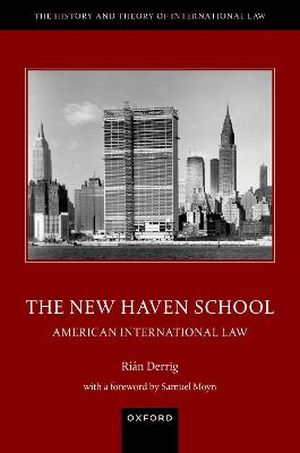
The New Haven School was a school of legal theory and practice that was developed and taught at Yale Law School and named for its place of origin. At its centre stood a 'policy-oriented jurisprudence' - so-called for its emphasis on using law to pursue acknowledged policy aims. It was developed by Harold Lasswell and Myres McDougal in the 1940s.
The New Haven School provides a comprehensive history of the School and a thorough examination of its impact on American International law in the past and today. Beginning with a review of Laswell and McDougal's biographies using previously unexploited archival materials drawn from multiple sites in New Haven, New York, and Chicago, this book explores the contexts that shaped this body of legal theory. From rural Mississippi to interwar Europe, to the American East Coast at mid-century, the book is a story of ideas and the people that used them. It narrates the moments, places, and contexts that shaped the approach that later became associated with the New Haven School, exploring progressive political movements of the early twentieth century United States and Europe, avant-garde interwar European psychoanalytic social theory, and the American tradition of philosophical pragmatism.
The book contextualizes the New Haven School within the larger context of twentieth-century human and social sciences. It shows how the School's style of argument, a specific anti-formalism and a collection of methods, characterized the American practice of international law in the middle of the twentieth century and still does today. In doing so, The New Haven School contributes new insights to current conversations among scholars as well as in wider public discourse about the history and future of America's approach to internationalism, democracy, and foreign policy.